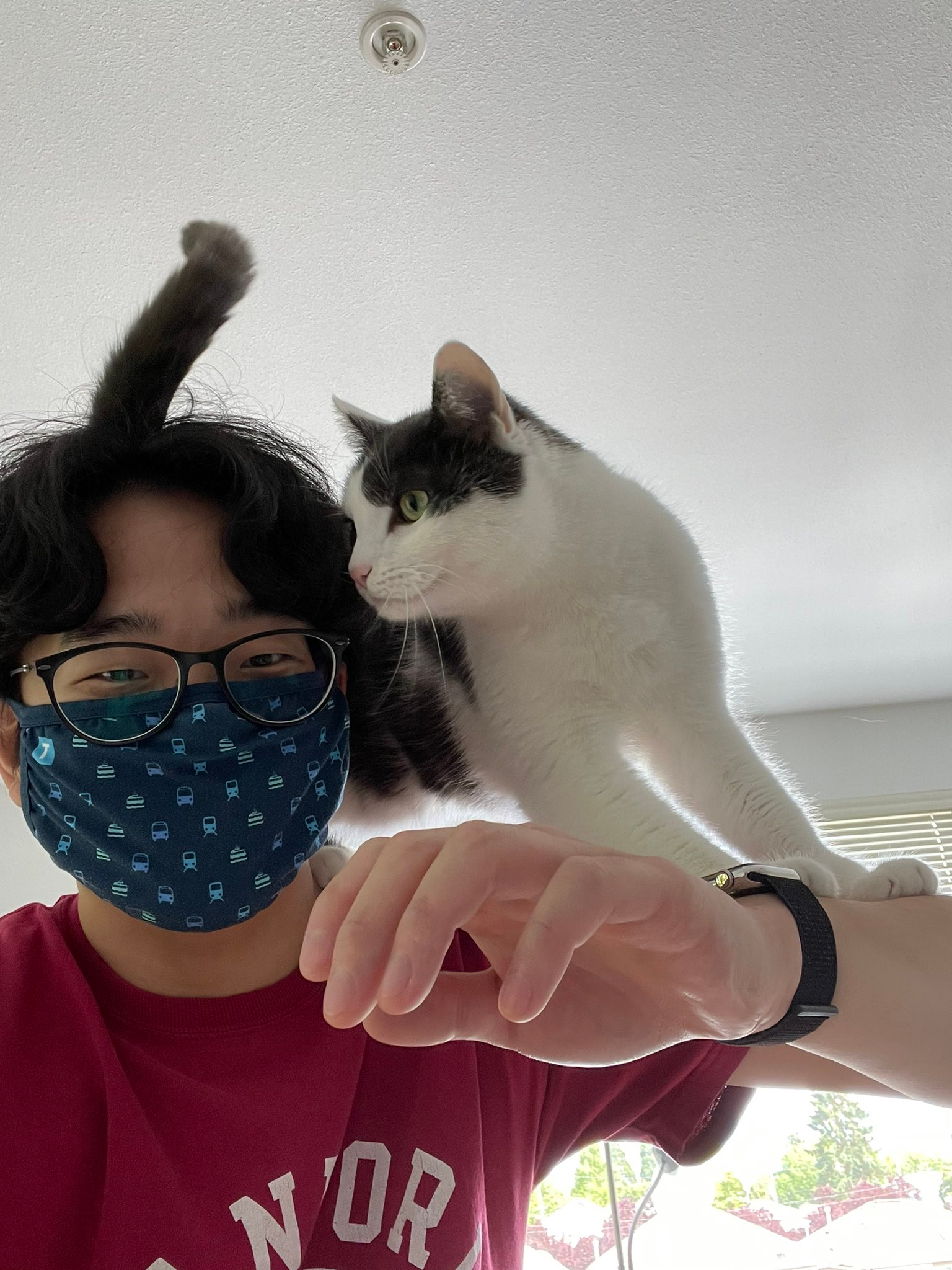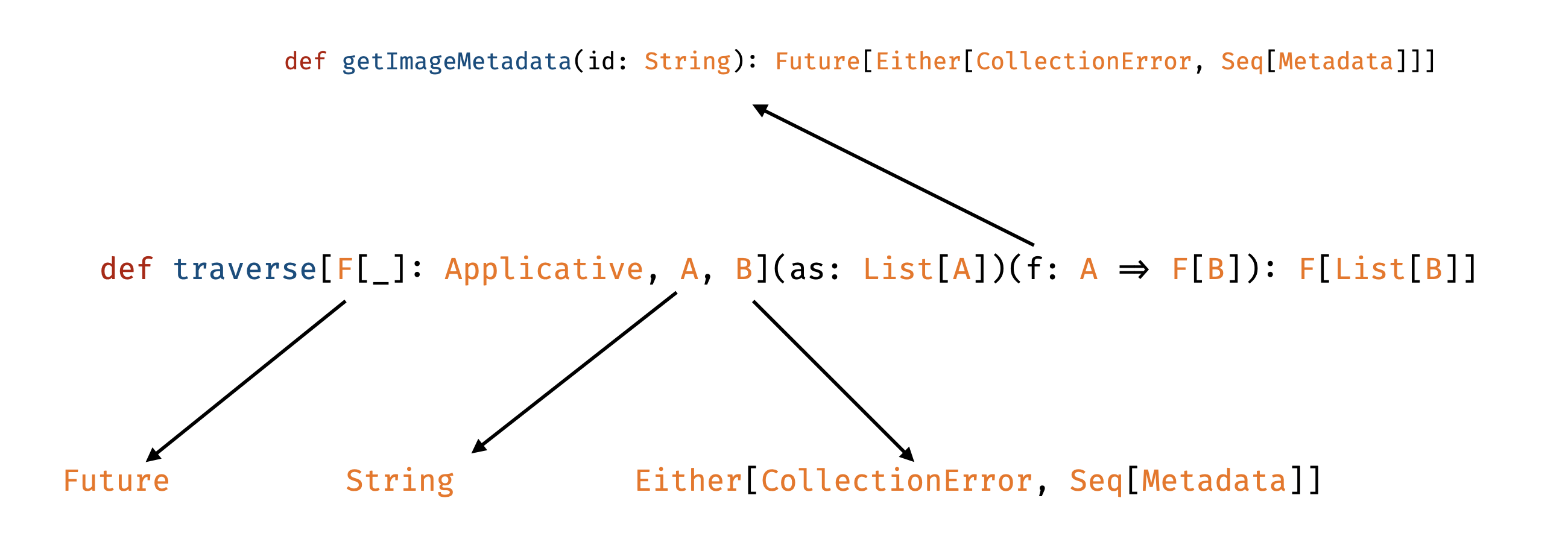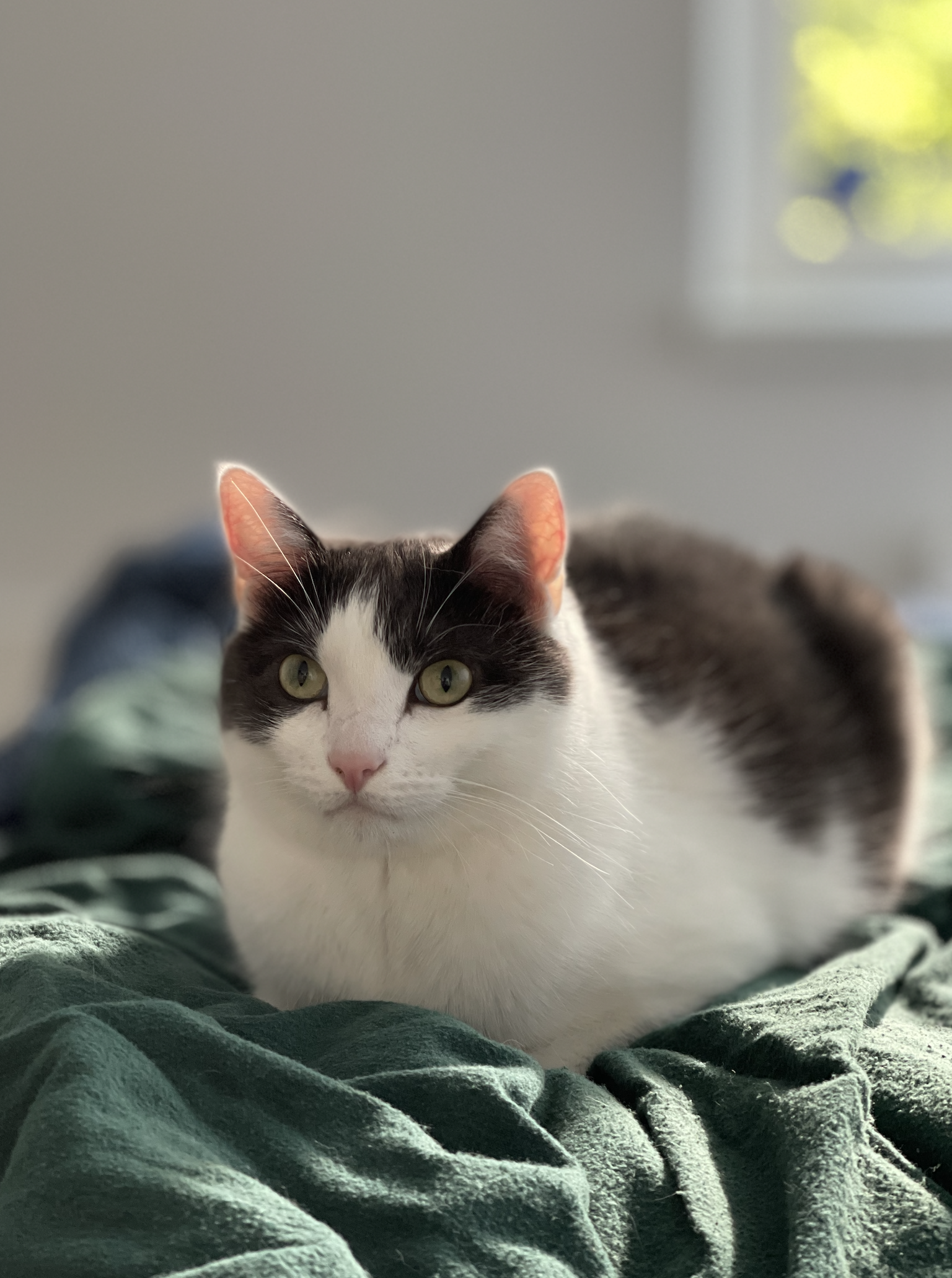Cats, Cats, Cats!
This week was supposed to be my first week at Twitter. Unfortunately, there was a shipping snafu and my laptop ended up getting delayed by a week. This meant that my start date was pushed back to tomorrow (June 7), and I had another week of unstructured life.
Cats
I received the following message from Adam on Thursday:
… I’m going camping this weekend and need someone to catsit Soccers… (emphasis my own)
Soccers is short for Socrates, which is the name of Adam’s cat. I had only seen and heard Socrates virtually. He’d often meow very loudly or jump across Adam’s webcam during our late-night 539 project sessions. The fact that I would be able to meet him in person was probably one of the highlights of my week.
I visited Adam’s place on Friday morning. Socrates was remarkably friendly; he didn’t appear to dislike being picked up by me and on occasion, actually headbutted me.

I despise taking photos of myself, but I made an exception this time. I couldn’t resist having a photo of Socrates on my shoulder like some furry, four-legged parrot. Man, I fucking love cats.
Parts of Saturday and this morning were spent going over to Adam’s (luckily, he lives a 5 minute bus ride away) and making sure Socrates had enough to eat and drink. It was also spent trying to earn his affection. I’d eventually like to get a cat one day, but I’ll wait until my living situation becomes a bit more permanent.
Cats (the Scala library)
Having a week of unstructured time basically meant that I went back to my old ways: reading source code and trying to kill time. This week, I decided to jump into the cats functional programming library for Scala. To motivate this, I refactored some functions that I wrote earlier this year using some of the new features afforded by cats.
I wrote a very lightweight API for storing images back in January as part of an interview for Shopify. They said I could use any language/framework I wanted, so I decided to use Scala and the Scalatra web framework. I hate frontend work, so I only created a backend service. The function below fetches the metadata for images belonging to a certain author:
override def getImageMetadataByAuthor(
author: String
): Future[Either[CollectionError, Seq[Metadata]]] =
for {
imagesByAuthor <- getImagesByAuthor(author)
eitherMetadata <- Future.sequence(imagesByAuthor.map(getImageMetadata))
} yield
if (eitherMetadata.forall(_.isRight)) Right(eitherMetadata.flatMap(_.toSeq))
else Left(LookupError(s"Error while looking up metadata for author: $author"))
At a high level, what this code does is:
- Query a database to get a list of ids of images by a given author (
imagesByAuthor) - For every id in the list from (1), map a call to
getImageMetadata, which eventually returns either an error or a metadata object (Either[CollectionError, Metadata]) - If all the operations were successful return the collapsed list of metadata, otherwise, return an error: (
Either[CollectionError, Seq[Metadata]])
It turns out that I was doing a lot more work than I needed to be doing. The first thing I did was desugar the for comprehension to a sequenced flatMap and map
getImagesByAuthor(author).flatMap { imagesByAuthor =>
Future.sequence(imagesByAuthor.map(getImageMetadata)).map { eitherMetadata =>
if (eitherMetadata.forall(_.isRight))
Right(eitherMetadata.flatMap(_.toSeq))
else Left(LookupError(s"Error while looking up image metadata for author: $author"))
}
}
What I realized after this desugaring is the “weirdness” of this line:
Future.sequence(imagesByAuthor.map(getImageMetadata))
What I’m effectively doing here is applying an effectful function, e.g. getImageMetadata, with a type signature String => Future[_], where Future is the effect, and applying it to every element of imagesByAuthor. This eventually leads to me having to work with the type: Seq[Future[_]]. Since this is a bit of a hairy type to work with, I used the built-in library function Future.sequence to transform Seq[Future[_]] to Future[Seq[_]].
Traverse
It turns out that this is an incredibly common pattern. Cats provides a library function called traverse that generalizes this “inversion,” with the type signature below
def traverse[F[_]: Applicative, A, B](as: List[A])(f: A => F[B]): F[List[B]]
This was a bunch of gibberish, and I’m going to refer back to the docs all the time, but basically:
F[_]is a type (a higher-kinded type) that represents a type constructor with a single parameter. Examples includeOption[A]orList[T]. TheFin these cases would beOptionandList.F[_]: Applicativemeans the type constructorFmust be an applicative. I’m not even going to try to explain what that is here (it’s going to be another newsletter, and even then I’ll butcher it).
AandBare just regular generic types.asis a list containing elements of typeAfis a function that goes fromAtoF[B]- the return type of this function is
F[List[B]].
I can instantiate traverse like so:

Meaning that I can rewrite what I had before to:
getImagesByAuthor(author).flatMap(_.traverse(getImageMetadata)...
I’m not quite done yet, since the type of the expression above is Future[Seq[Either[CollectionError, Seq[Metadata]]]], which is not what I want.
I need some way to collapse the sequence of Either values inside the Future. What I did was map over the inner value and call combineAll:
getImagesByAuthor(author).flatMap(_.traverse(getImageMetadata).map(_.combineAll))
I am calling .combineAll on the Seq[Either[_]], and I can do this because Seq is a datatype that implements a combine operation. The final result was a refactoring that transformed:
for {
imagesByAuthor <- getImagesByAuthor(author)
eitherMetadata <- Future.sequence(imagesByAuthor.map(getImageMetadata))
} yield
if (eitherMetadata.forall(_.isRight)) Right(eitherMetadata.flatMap(_.toSeq))
else Left(LookupError(s"Error while looking up metadata for author: $author"))
to
getImagesByAuthor(author).flatMap(_.traverse(getImageMetadata).map(_.combineAll))
Pretty cool. I’m not sure if I’ll be using the cats library at work, but it’s definitely something for me to play around with a bit more.
Cat
This was a pretty long newsletter, and the most technical one I’ve written so far. Thanks for reading!
